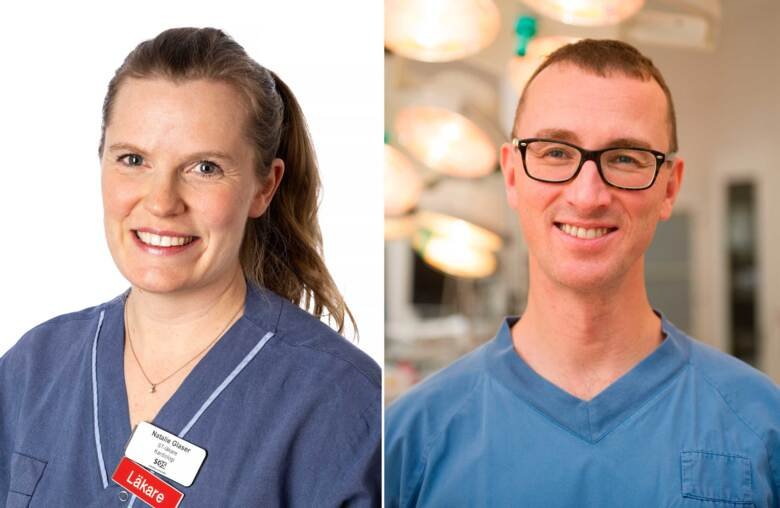Researchers at the Thoracic Surgery group receive fundings from the Swedish Heart Lung Foundation

We congratulate Natalie Glaser and Ulrik Sartipy at the Thoracic Surgery group, Department of Molecular Medicine and Surgery, who receive research grants from the Swedish Heart Lung Foundation.
Natalie Glaser receives SEK 700 000 per year in 3 years (2,1 mil) for the research project "Registerstudier om kateterburen aortaklaffimplantation och kirurgisk behandling av endokardit".
“Our project aims to study complications and prognosis after transcatheter aortic valve implantation (TAVI) and surgery for endocarditis in different patient groups”, says Natalie Glaser, Associate Professor of Experimental Cardiology at the Thoracic Surgery research group. “Using national health data registers, we have established a database with detailed information on all patients who have undergone aortic valve surgery in Sweden since 1997”, she continues. “This database is used to answer the study questions by means of conventional statistical and epidemiological methods. Our studies will lead to an increased knowledge of TAVI and surgical treatment for endocarditis. This increased knowledge can be used to improve patient care both before and after surgery and to better adapt care for each individual patient”.
Ulrik Sartipy receives SEK 600 000 per year in 2 years (1,2 mil) for the research project "Risk och prognos vid hjärtkirurgi - nationella registerstudier".
“Our research aims to better understand the importance of various factors for prognosis after heart surgery", says Ulrik Sartipy, Adjunct Professor of Thoracic Surgery. “Through increased knowledge of the importance of common medical conditions in patients with heart disease, we can contribute to improved survival and reduced morbidity in patients who have or are to undergo heart surgery”, he continues. “We perform nationwide population-based studies among patients undergoing cardiac surgery by linking information that is collected daily in Swedish national health-data registers and quality registers. Clinically relevant questions are investigated where the results of our studies can directly be put into clinical use”.
